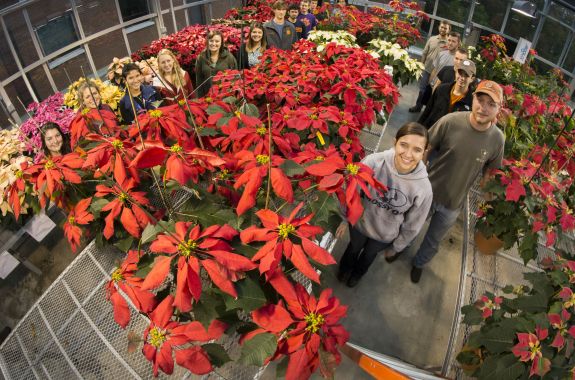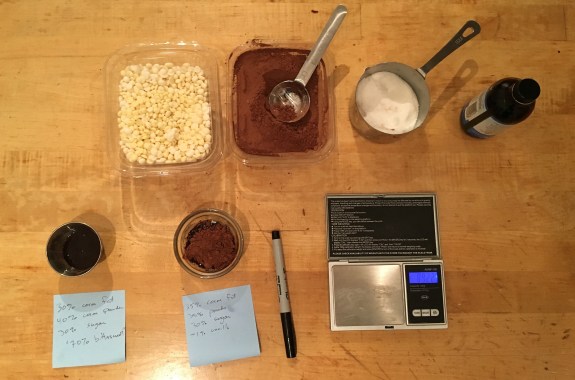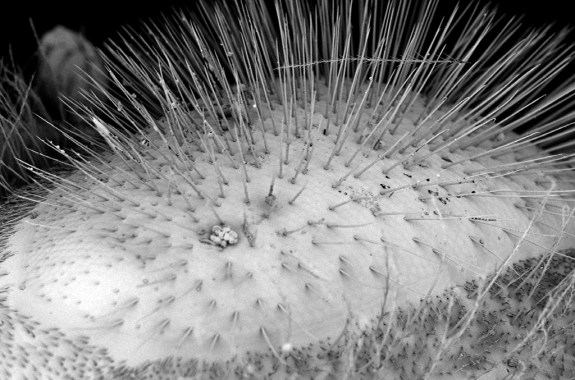Christopher Intagliata was Science Friday’s senior producer, which means he was chief cheerleader for all the radio and podcast projects. He helped to select and shape stories, or put them to a gentle death if necessary. He was also the coordinating producer for Science Friday’s live stage events around the nation, and has skated Olympic ice and served as a prop in an optical illusion for SciFri.
Christopher started at Science Friday as an intern in summer 2008, until the day Ira Flatow called him at home, triggering enormous anxiety about the latest script he’d written, to ask if he wanted to be a producer. His favorite stories usually involve microbes or food or both, but anything can pique his interest—other than ocean chemistry. Sorry.
He also reports regularly for Scientific American‘s “60-Second Science” podcast, and was a 2015 Woods Hole Ocean Science Journalism fellow. Prior to becoming a science journalist, he taught English to soldiers and bankers in Verona, Italy, and traversed the Sierra Nevada mountains as a field biologist, on the lookout for mountain yellow-legged frogs. He speaks fluent Italian, awkward Japanese, and passable Ira Flatowese.
He is now an editor for All Things Considered.
17:11
Always Hungry? Your Fat Cells May Be To Blame
Certain diets cause fat cells to suck up too much fuel, says David Ludwig, author of the new book “Always Hungry,” leaving the rest of the body hungry.
17:25
Two Cosmic Explorers Investigate the World Within Us
In this archival interview from October 9, 1992, Carl Sagan and Ann Druyan talk about their book “Shadows of Forgotten Ancestors: A Search for Who We Are.”
12:17
Stalking The Wilds Of Mexico For A Christmas Classic
Clemson University floriculturist Jim Faust arrived in Manzanillo, Mexico, with an unusual mission: to stalk a population of wild poinsettias growing in their native habitat.
17:14
Do Scientists Have the Duty to Speak Out?
The popular anti-terrorism slogan, “If you see something, say something,” asks citizens to speak up if they see a potential threat. But does that apply to scientists?
7:19
Cell Implant Treats Inflammation Before It Starts
Designer cells detect inflammatory compounds that foreshadow an autoimmune attack, pumping out anti-inflammatory compounds in response.
16:48
Do-It-Yourself Liquid Smoke, and Other Kitchen Hacks
Jeff Potter, author of “Cooking for Geeks,” explains how to make sour cream, chocolate bars, rolled oats—and even liquid smoke—from scratch.
28:59
These Science Students Learn to Think on Their Feet
Science students at New York’s Stony Brook University have an unusual offering on the class roster: “JRN 503: Improvisation for Scientists.”
27:50
Why Machines Discriminate—and How to Fix Them
Big data sets can perpetuate the same biases present in our culture, teaching machines to discriminate when scanning resumes and approving loans.
12:02
Microscopic Hairs Keep Some Critters Clean
Studying the hair tricks of the insect world might lead researchers to better self-cleaning materials, like solar panels that dust themselves.
17:32
Gene Therapy Aims to Switch on Hearing
Researchers have developed several genetic therapies for hearing loss that show promise in animal studies, but it’s unclear whether they’ll succeed in humans.




